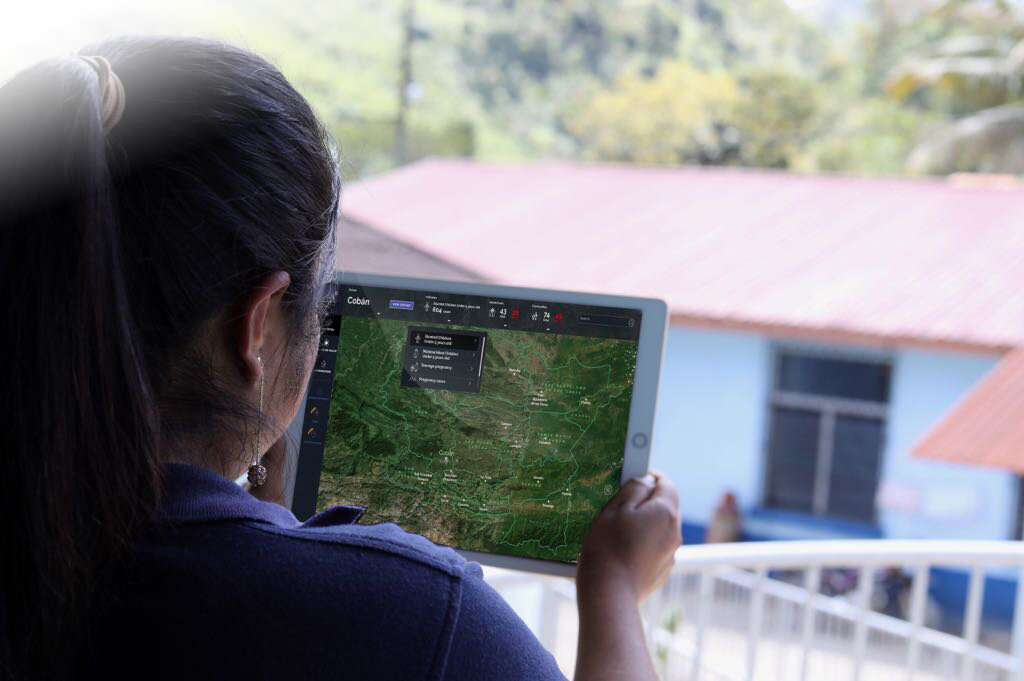
ATLAS
A Precision Health and Equity tool for Frontline workers.
The Problem.
Community Health Providers around the globe struggle to manage workers and resources as they deliver care to more than 4 billion people worldwide.

The Solution
ATLAS integrates diverse health data and non-health information with advanced analytics to generate timely, prioritized, and accessible insights that motivate frontline action.

The Process
To run our Human-Centered Design process and work with real potential users in authentic contexts, we traveled to Guatemala, where the organization Tula Salud has deployed Community Health Workers in the region of Alta Verapaz to deliver healthcare in remote villages.
Guatemala has high maternal and child morbidity and mortality rates in Latin America, mostly related to malnutrition and pregnancy complications. That is why several organizations are deploying auxiliary nurses and community health workers in remote areas.
With the help of a local organization that works in the Department of Alta Verapaz, we conducted Design Sprints:
Identify the stakeholders involved in these systems
Map out their workflows
Pinpoint the gaps in the workflows to identify opportunities
Frame some of these challenges as defined problems
Ideate and prototype concepts to respond to those problems AND THEN, we synthesized the information to make it actionable.






The following is the Community Health Model Workflow that we recreated from our research in Guatemala.
It involves many actors, interactions, and methodologies to transfer the clinical data from the patient at the community level to higher levels, all the way to the national government.
This process involving clinical data for healthcare delivery currently takes at least a few weeks, lowering the capacity to deliver healthcare to those who need it the most.
We identified four tiers of roles involved:
Front line and Community based Users
Facility-Based users
Population Health Management Users
Health Leadership Users
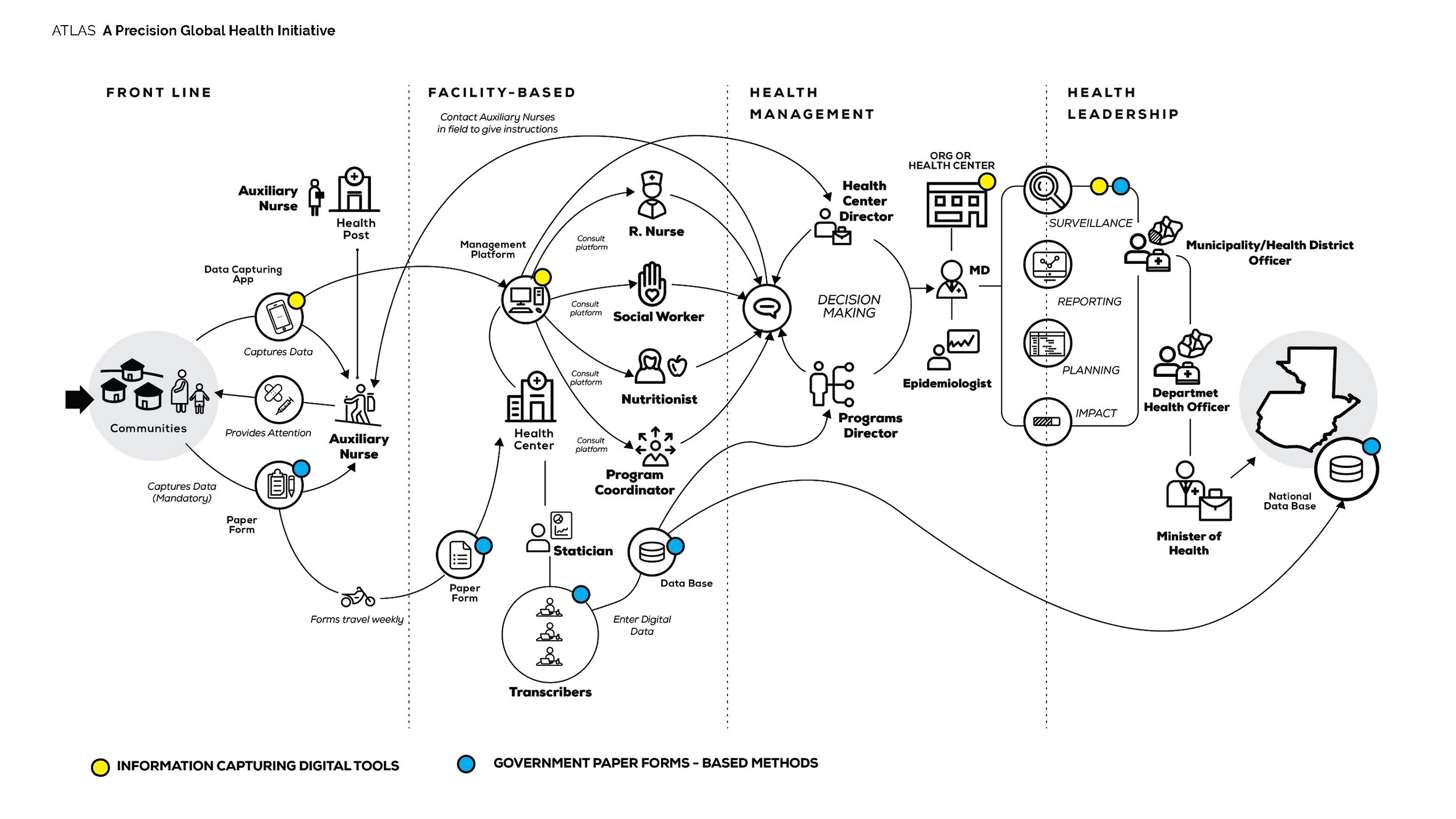
What We Found
We realized the importance of DATA EXCHANGE and COMMUNICATION throughout the process, and these dimensions respond to that realization
The highlighted spots are those areas where ATLAS can intervene to streamline process across the board, from the community level to the national level.
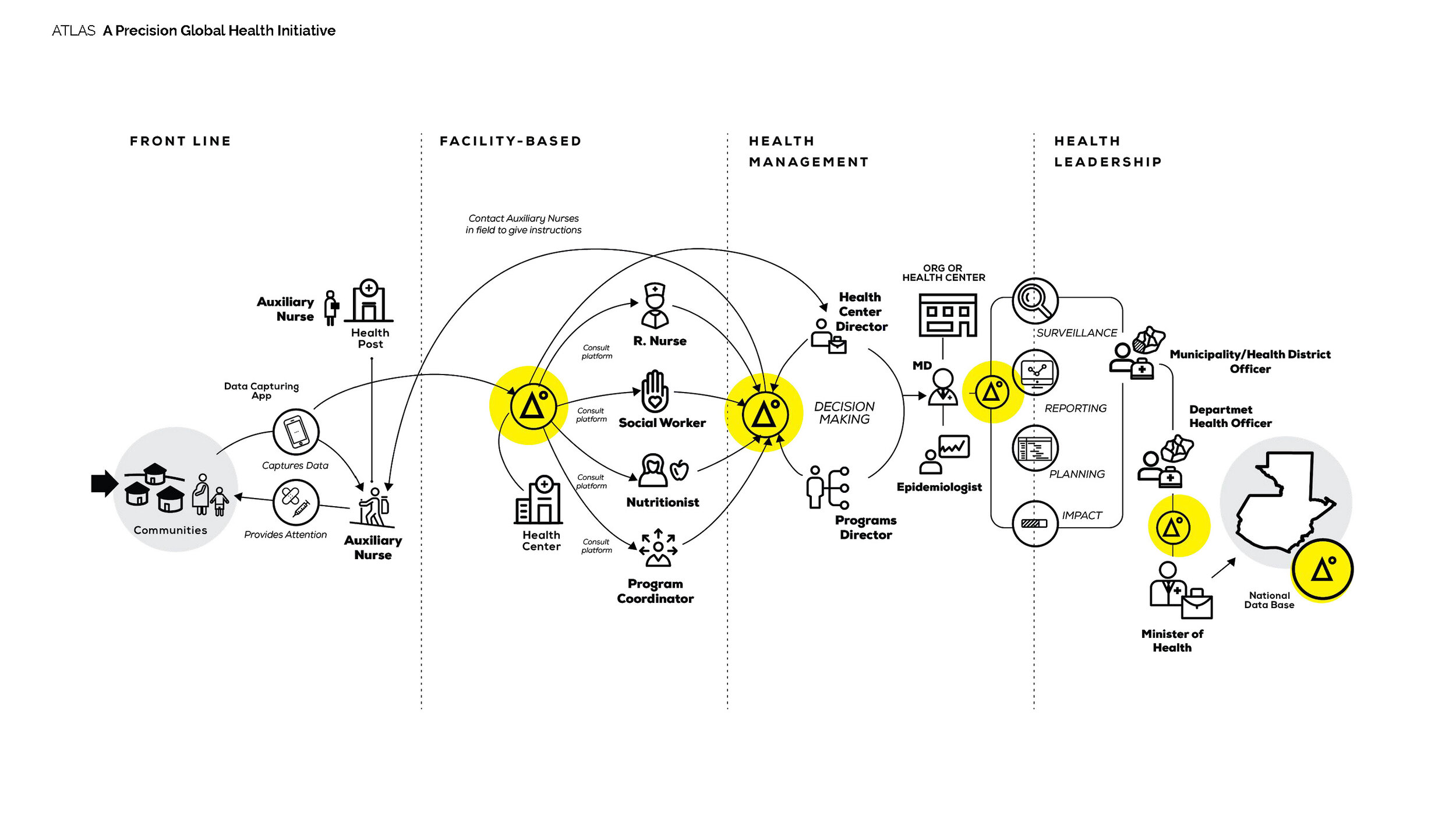
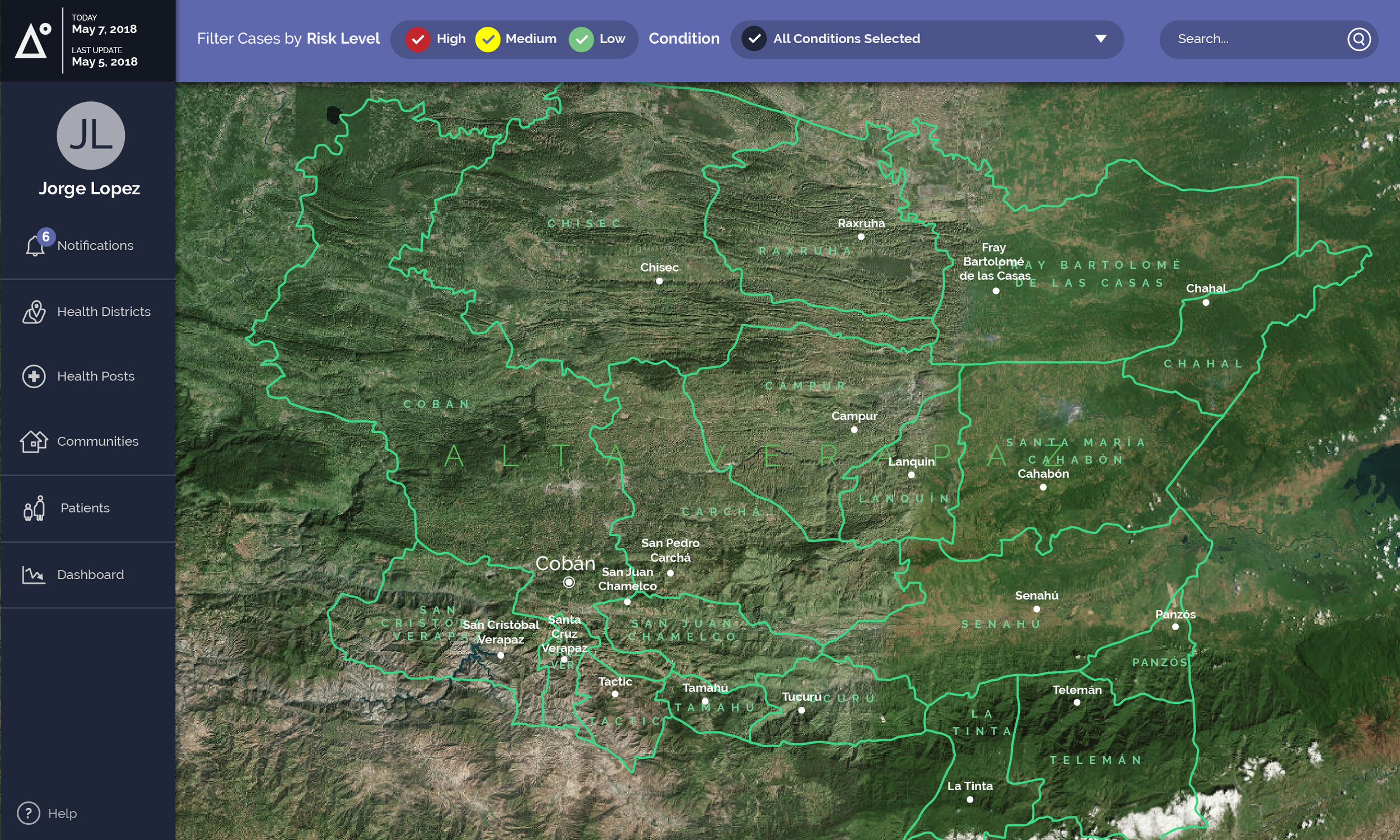
Design Outcomes
Atlas is a PLATFORM that encompasses a suite of tools that takes clinical information captured by community health workers in the field, and combines it with environmental data to generate INSIGHTS, BASED ON DATA VISUALIZATIONS that help teams to take actions in order to reduce morbidity and mortality in remote regions.
The following are the main features of the ATLAS suite:
MAP-BASED VIEW FOR CASES MANAGEMENT
Locates needs and disease trends within the manager’s catchment area, allowing them to deploy workers and allocate resources timely.


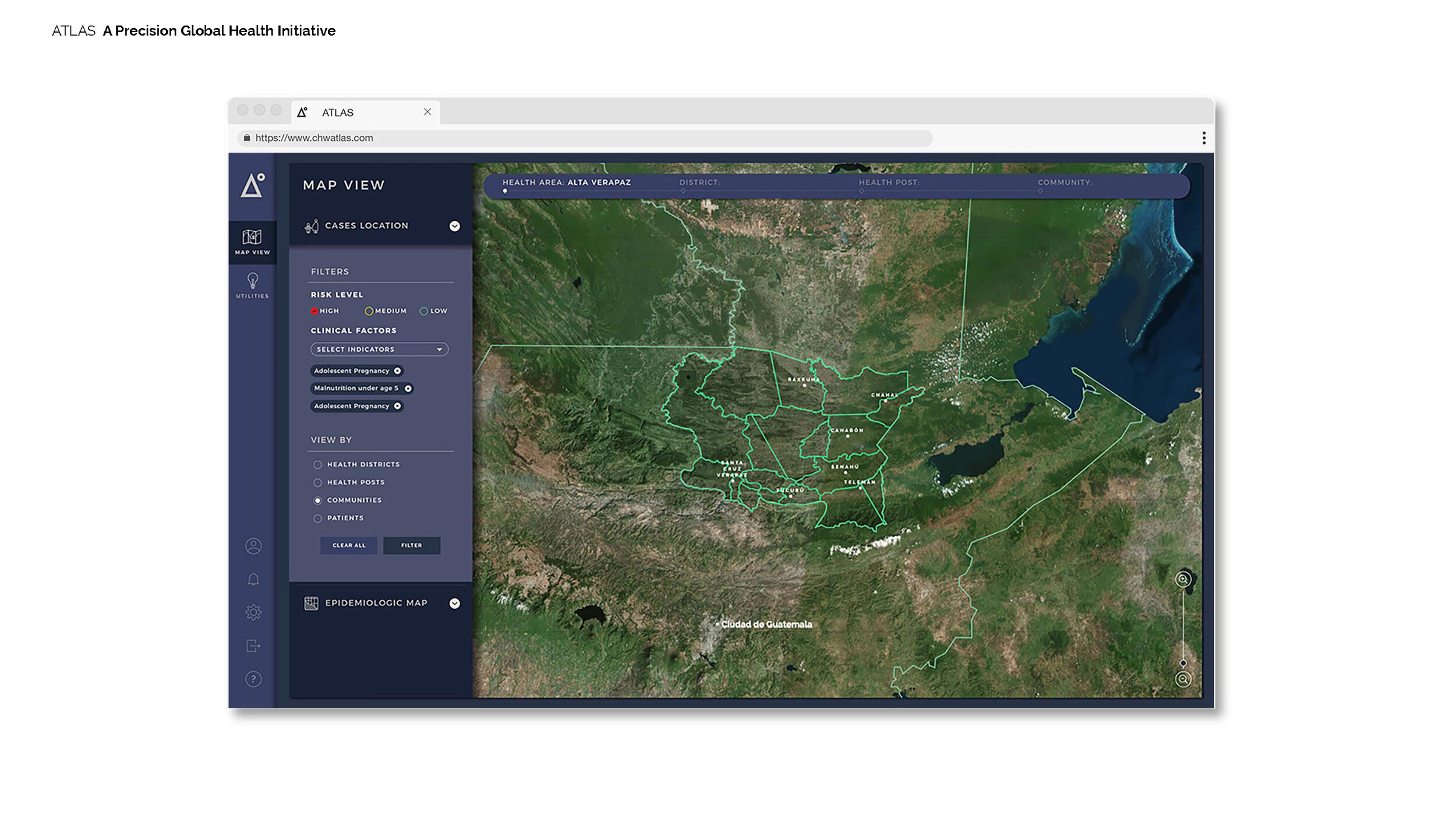
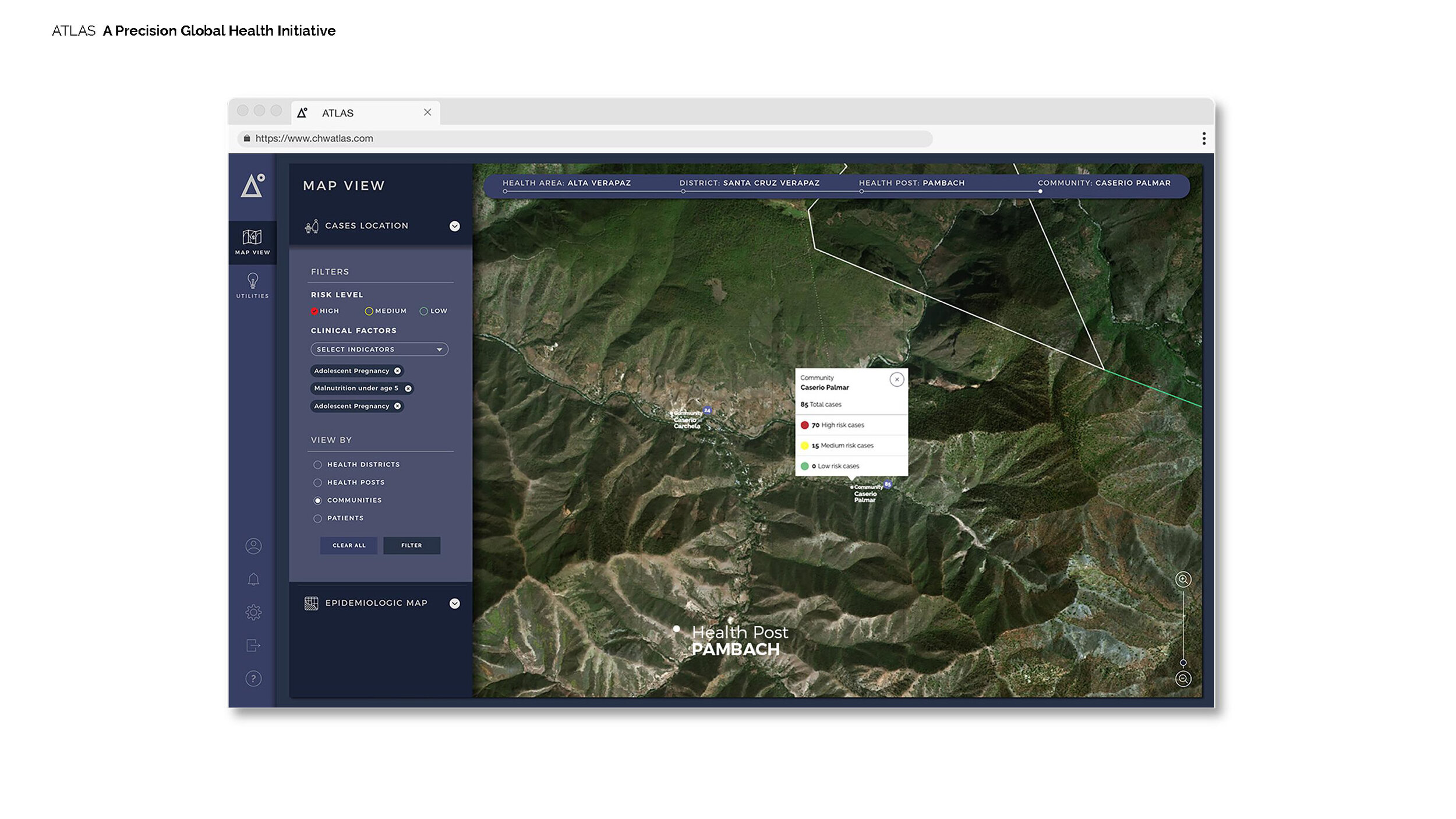

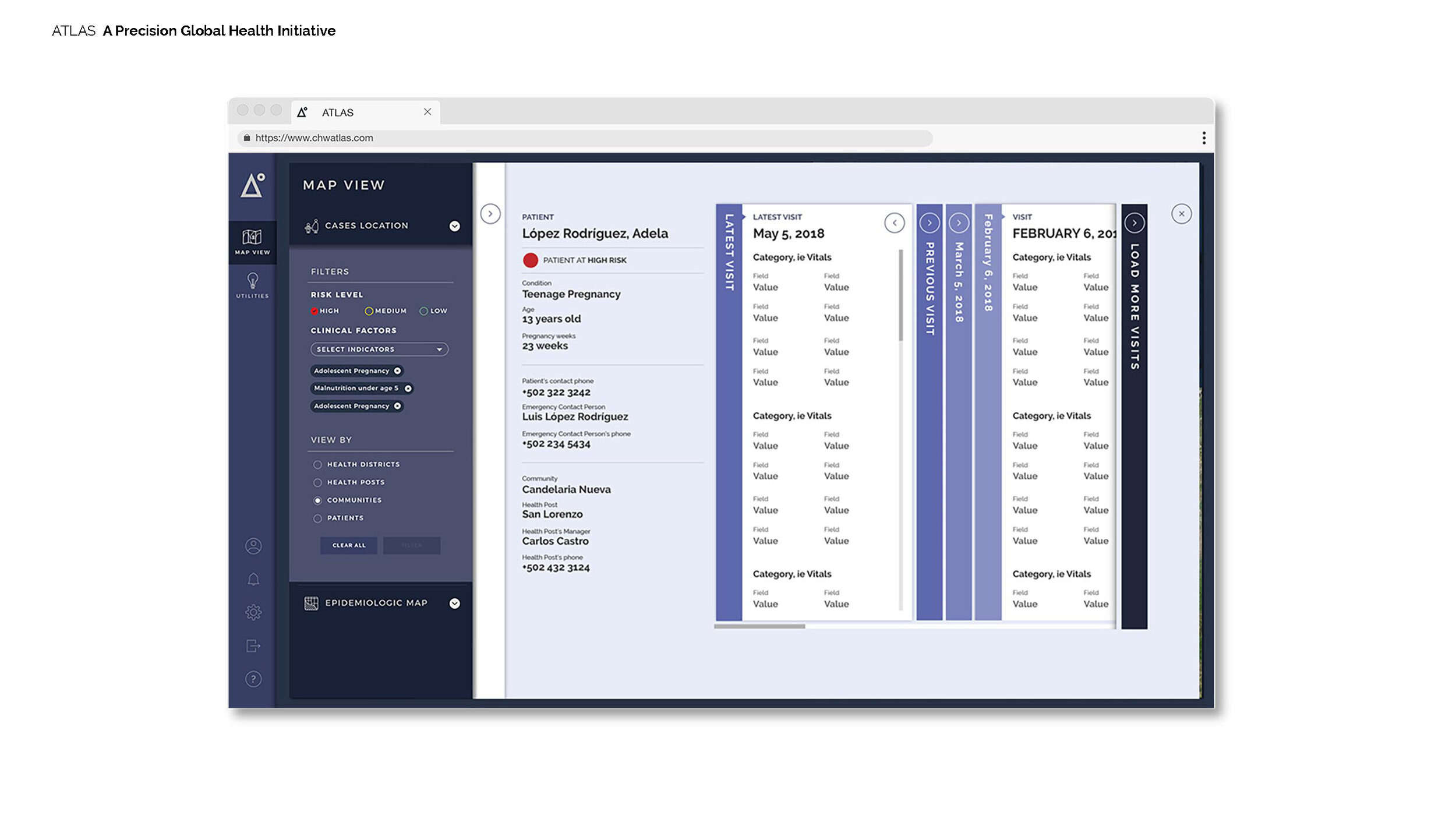
MAP-BASED VIEW FOR CONTEXTUAL DATA VIZ.
Incorporates contextual information, including temperature, rainfall levels, humidity, etc., to provide insight into their influence on disease trends.



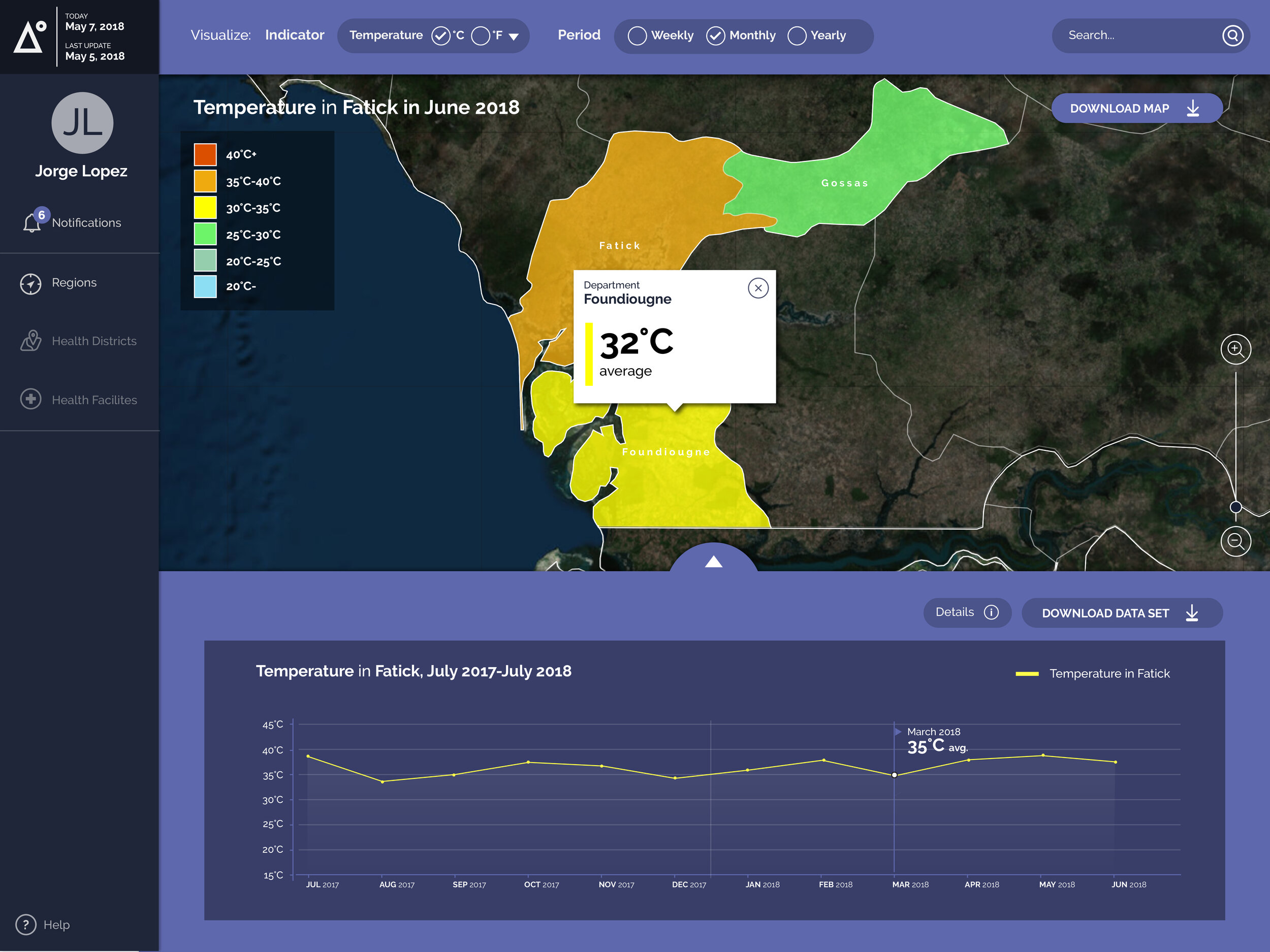
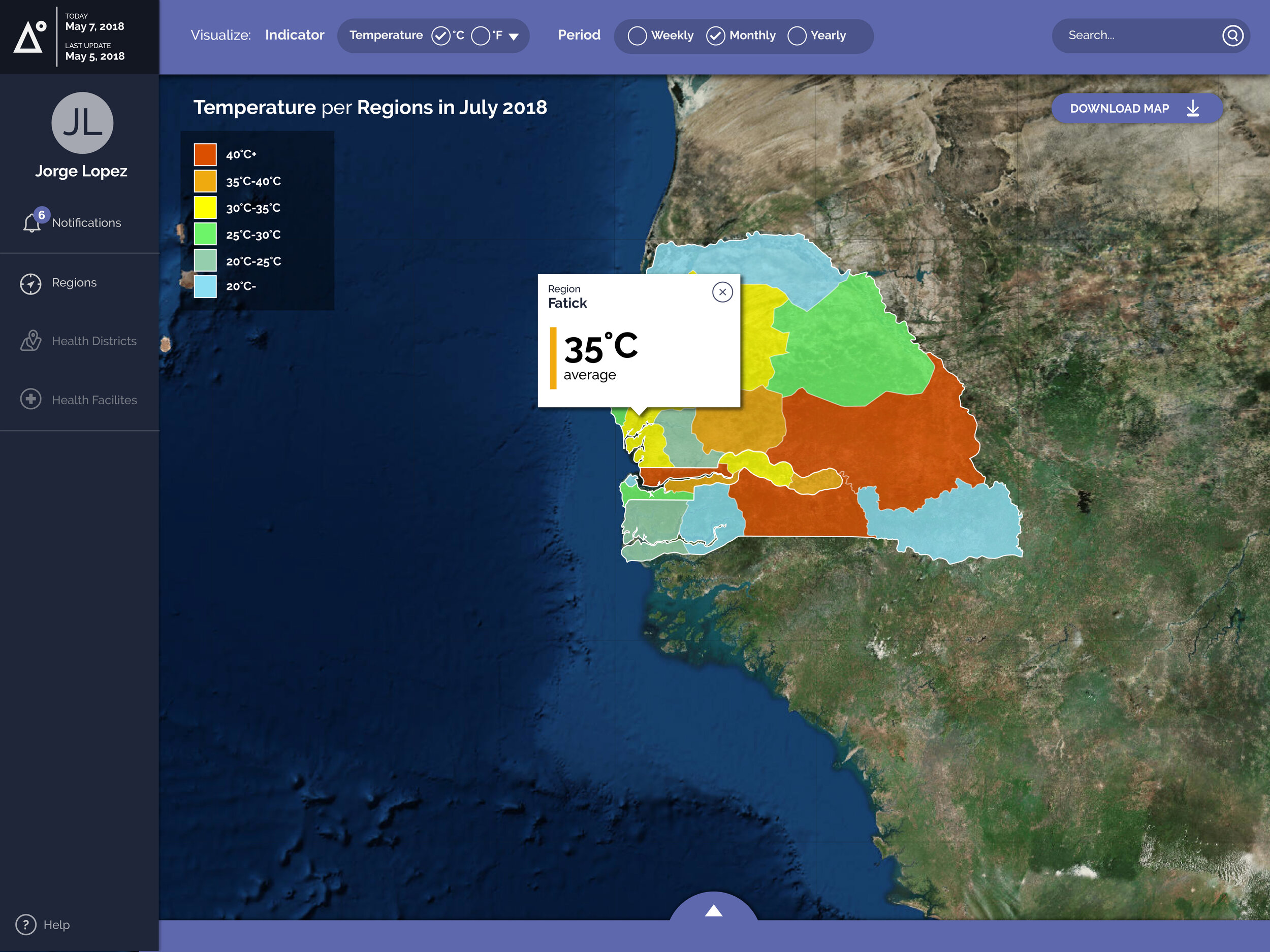
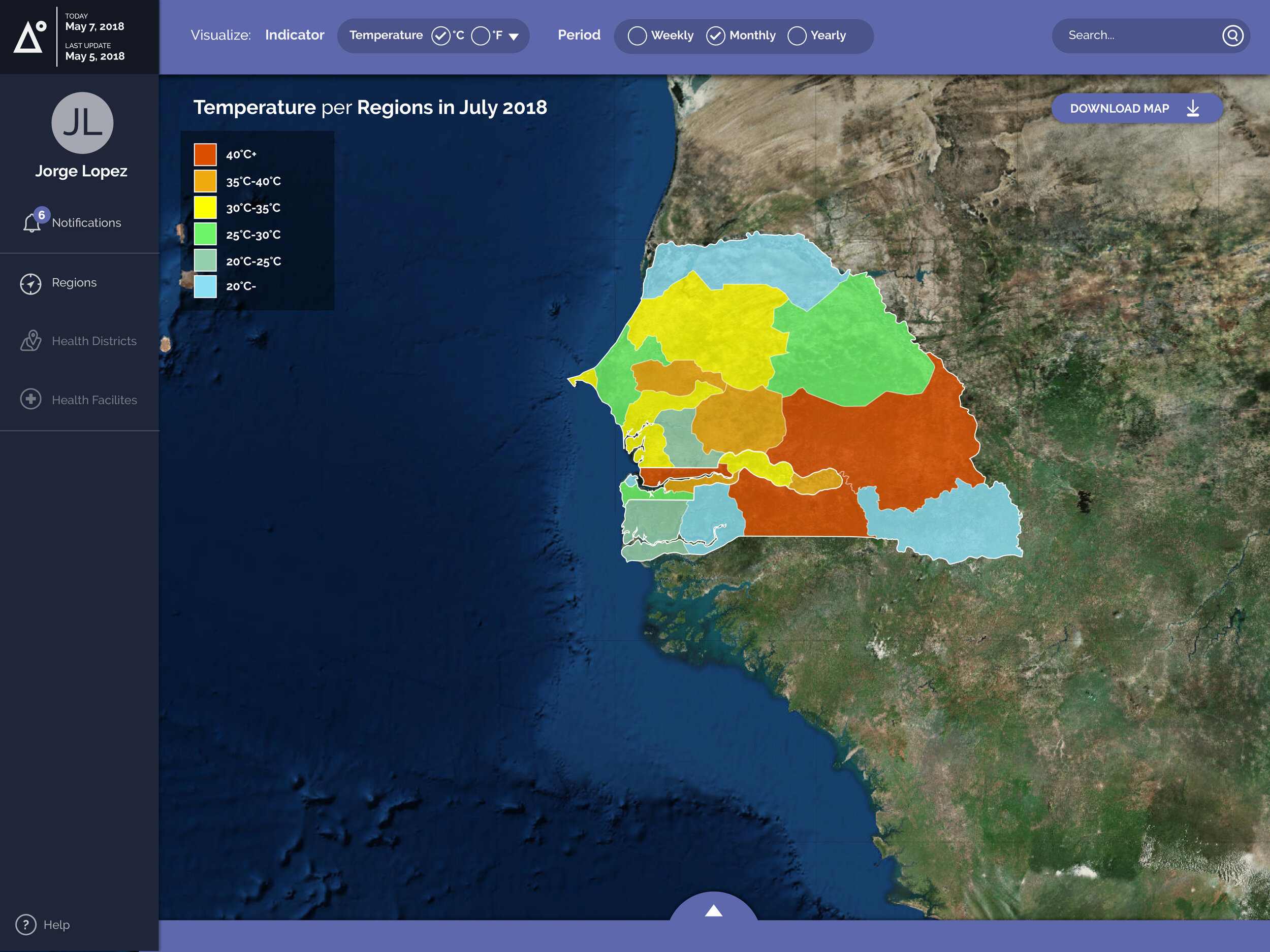
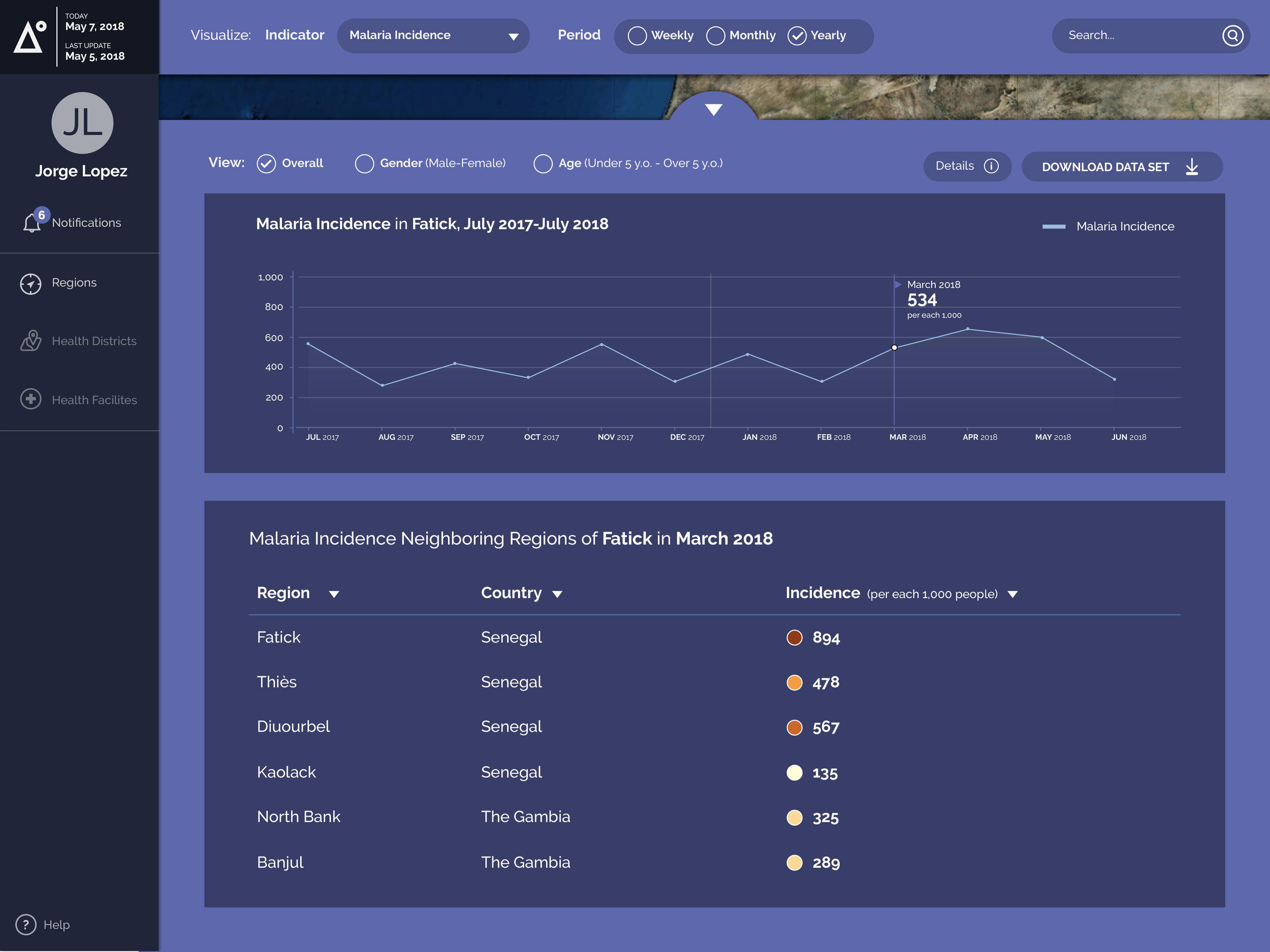


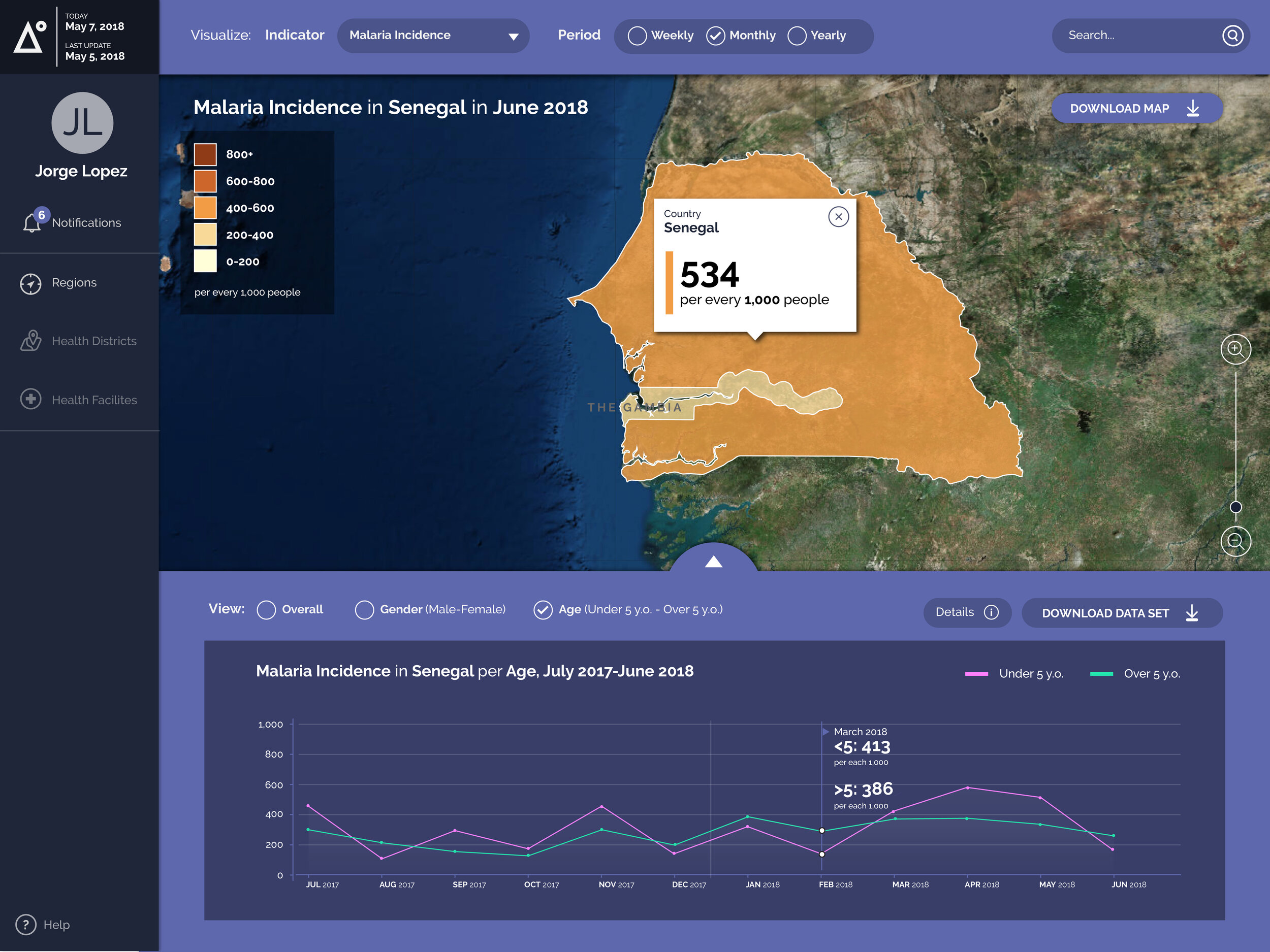
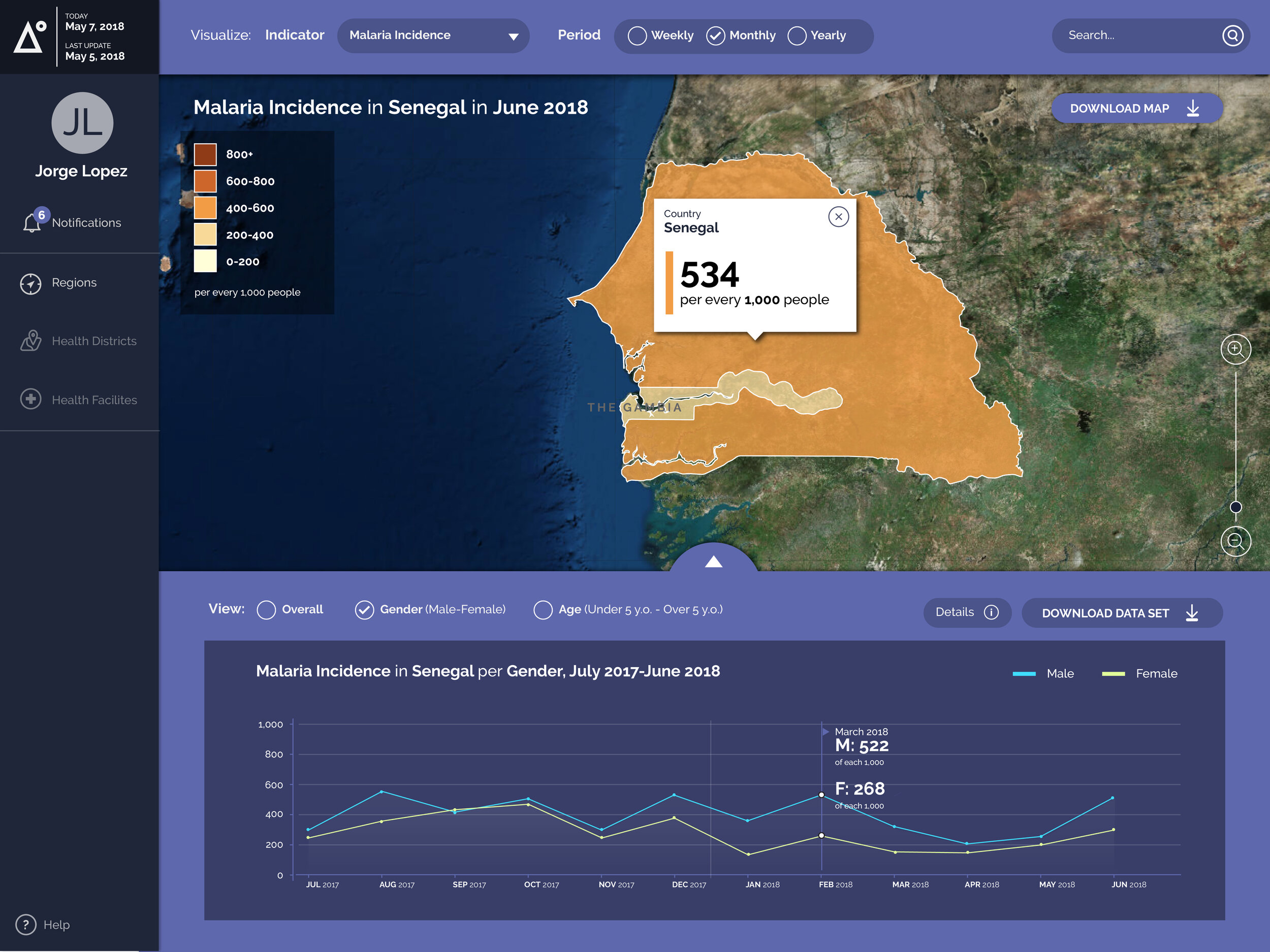

USER HUB
Provides Community Health managers with multiple functionalities, organized as modules, that facilitate their tasks interacting with their teams and monitoring patients’ cases and needs.


The mobile version is an approximation to a native application version, as an evolution of the mobile version of the platform.

This project was developed for the Global Health Department at the Mount Sinai Health System between 2017 and 2019.



